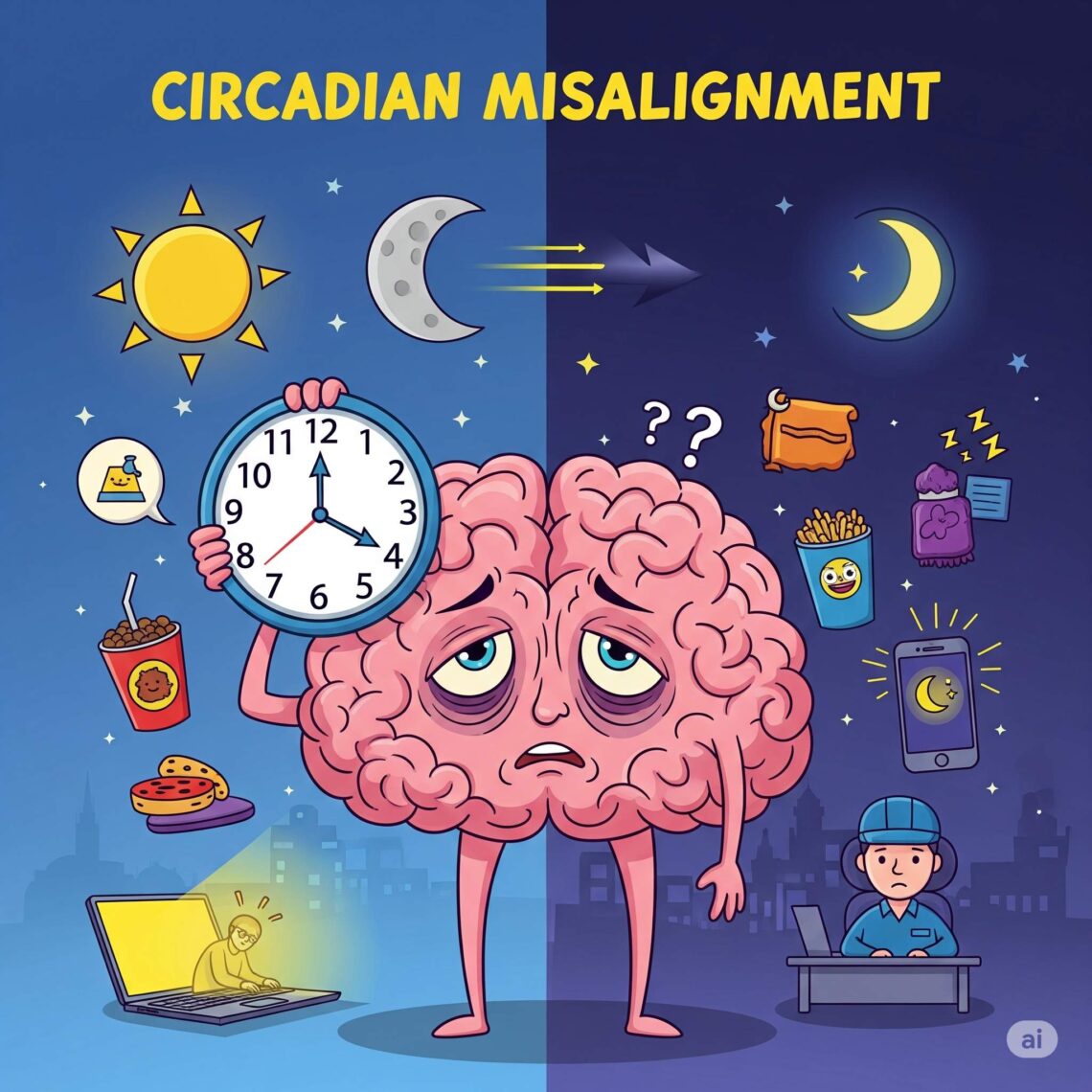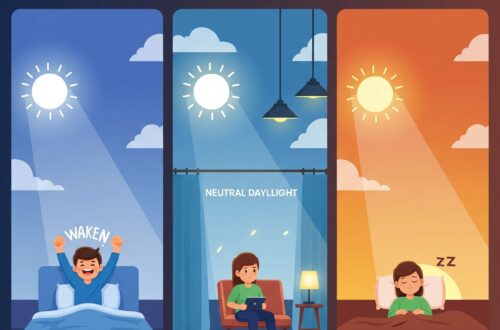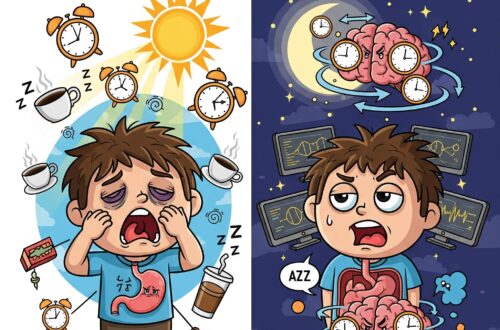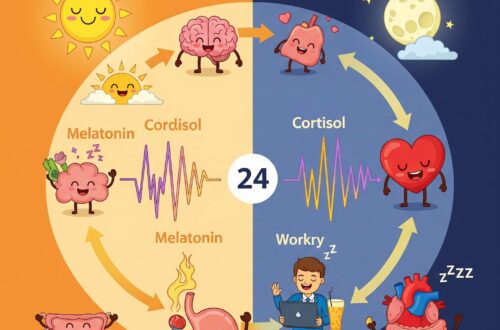In today’s 24/7 society, many people unknowingly suffer from circadian misalignment, a condition that silently disrupts your internal body clock. This misalignment between your biological rhythms and external cues such as light, food, and activity can wreak havoc on your health, performance, and overall well-being.
What Is Circadian Misalignment?
Circadian misalignment occurs when your internal body clock—also known as the circadian rhythm—is out of sync with your environment or behavior. Your circadian system is a 24-hour cycle that regulates sleep-wake timing, hormone release, metabolism, and even immune function. It’s controlled by a master clock in the brain (the suprachiasmatic nucleus) and is highly sensitive to external cues, especially light and darkness.
When your lifestyle doesn’t match your natural rhythm—such as staying up late, eating at irregular times, or working night shifts—your body experiences internal confusion. This disconnect is what we call circadian misalignment.
Causes of Circadian Misalignment
There are several common causes of circadian disruption:
- Shift Work: Working at night and sleeping during the day leads to chronic misalignment between your body’s natural rhythm and your activity schedule.
- Jet Lag: Rapid travel across time zones throws off your internal clock and often results in temporary circadian misalignment.
- Late-Night Screen Use: Exposure to blue light from phones and computers in the evening suppresses melatonin, delaying sleep onset.
- Irregular Sleep Schedules: Inconsistent bedtimes and wake-up times, especially on weekends, contribute to “social jet lag.”
- Eating Late at Night: Food is a powerful circadian cue. Eating at odd hours can desynchronize your digestive rhythms from your brain’s clock.
Health Risks of Circadian Misalignment
Circadian misalignment doesn’t just make you feel groggy. Research links it to a host of health issues, including:
- Insomnia and Poor Sleep Quality
- Obesity and Weight Gain
- Type 2 Diabetes
- Heart Disease
- Weakened Immune Function
- Depression and Anxiety
- Cognitive Decline and Memory Loss
The risk is higher for those with chronic or long-term circadian disruption, such as shift workers, frequent travelers, or people with irregular sleep habits.
How to Fix Circadian Misalignment
Restoring alignment with your circadian rhythm can improve sleep, boost energy, and reduce your risk of chronic illness. Here are science-backed ways to realign your clock:
1. Prioritize Morning Light
Expose yourself to natural sunlight within 1–2 hours of waking. This helps anchor your internal clock and promote better sleep at night.
2. Avoid Blue Light at Night
Turn off screens or use blue light filters 1–2 hours before bedtime. Dim your lights in the evening to signal your brain that it’s time to wind down.
3. Stick to a Consistent Schedule
Wake up and go to bed at the same time every day—even on weekends. Your body thrives on regularity.
4. Time Your Meals
Eat during daylight hours and avoid heavy meals late at night. Aligning food intake with your circadian rhythm supports metabolism and digestion.
5. Use Red Light in the Evening
Red and amber light has minimal impact on melatonin production and can help promote relaxation before sleep. Circadian misalignment is a modern health epidemic hiding in plain sight. Whether you’re a night owl, a shift worker, or simply glued to your screen too late, your disrupted biological clock may be the reason behind your fatigue, weight issues, or mood swings. The good news? With consistent lifestyle adjustments, you can restore circadian alignment and unlock better health, deeper sleep, and stronger vitality.
Top Circadian Essentials Tools and Devices
























